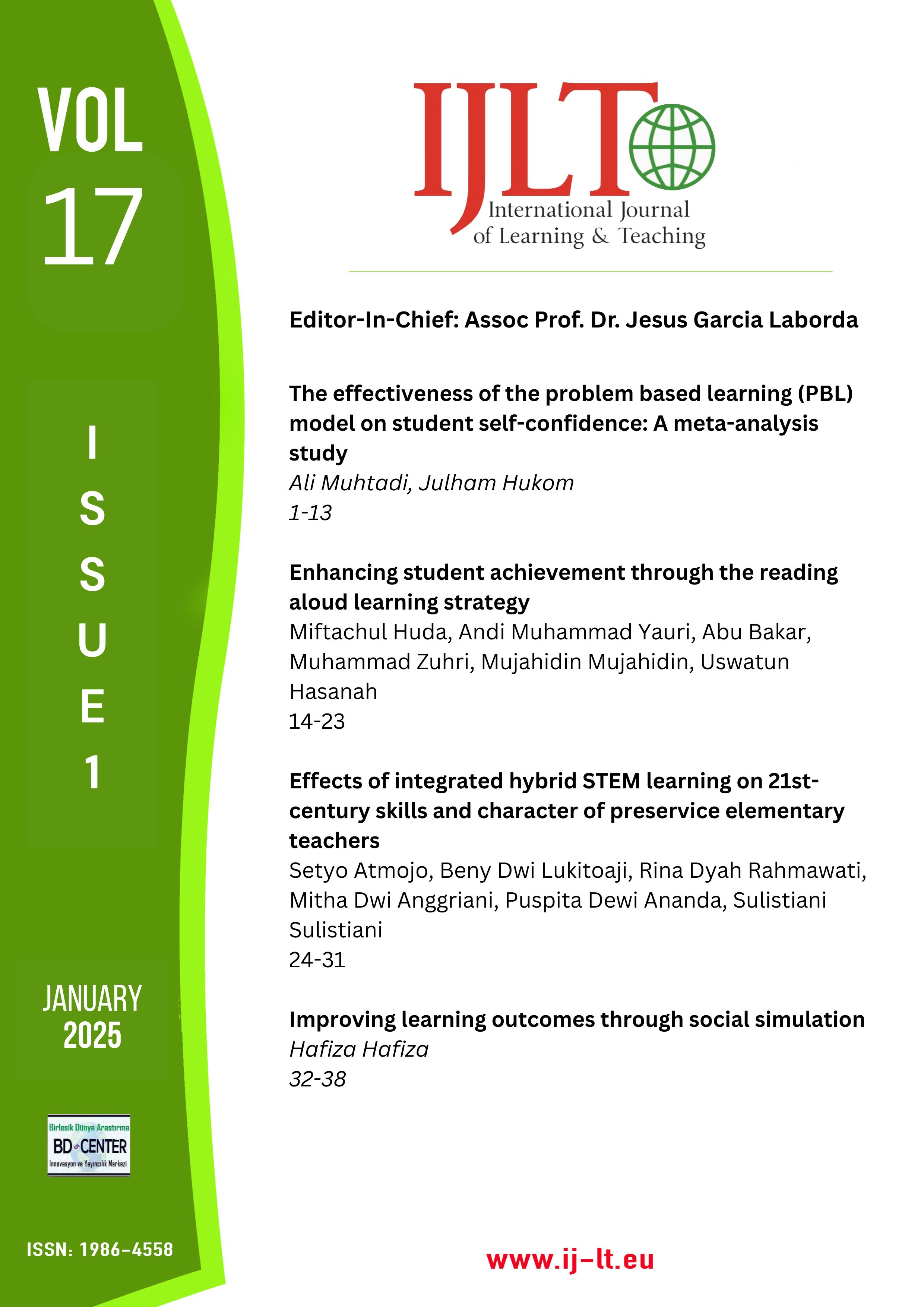The effectiveness of the problem based learning (PBL) model on student self-confidence: A meta-analysis study
Main Article Content
Abstract
The Problem-Based Learning (PBL) model encourages students to engage with real-world problems, fostering contextual and meaningful learning experiences that reduce the perception of abstract thinking. This approach is considered beneficial for enhancing students' self-confidence. However, previous studies examining the effectiveness of the PBL model on self-confidence have reported inconsistent findings. To address this gap, the present study conducted a meta-analysis to evaluate the overall impact of the PBL model on student self-confidence in comparison to conventional learning models. The analysis synthesized 20 effect sizes from 17 primary studies published between 2016 and 2022. Using a random effects estimation model, the findings indicate a statistically significant and moderately positive impact of PBL on students’ self-confidence. These results offer a more objective understanding of the PBL model’s effectiveness and highlight its potential as a pedagogical strategy for fostering confidence in learners. The study provides valuable insights for educators and policymakers in selecting instructional approaches that support student development.
Keywords: Meta-analysis; pedagogical models; problem-based learning; self-confidence; student engagement.
Downloads
Article Details

This work is licensed under a Creative Commons Attribution-NonCommercial-NoDerivatives 4.0 International License.
Authors who publish with this journal agree to the following terms:
- Authors retain copyright and grant the journal right of first publication with the work simultaneously licensed under a Creative Commons Attribution License that allows others to share the work with an acknowledgement of the work's authorship and initial publication in this journal.
- Authors are able to enter into separate, additional contractual arrangements for the non-exclusive distribution of the journal's published version of the work (e.g., post it to an institutional repository or publish it in a book), with an acknowledgement of its initial publication in this journal.
- Authors are permitted and encouraged to post their work online (e.g., in institutional repositories or on their website) prior to and during the submission process, as it can lead to productive exchanges, as well as earlier and greater citation of published work (SeeThe Effect of Open Access).
